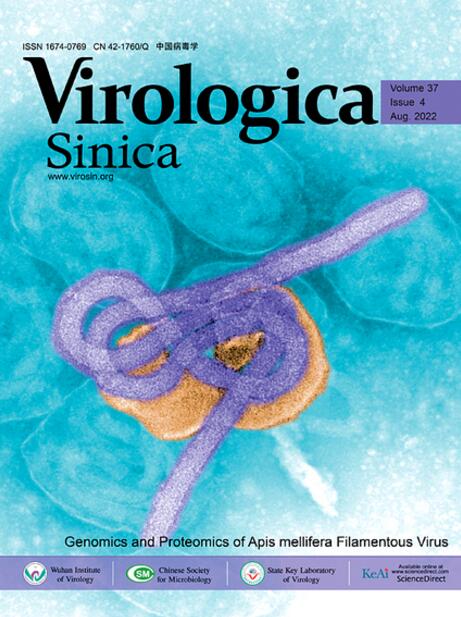青芪归脾汤能诱导 S 细胞周期停滞,抑制严重发热伴血小板减少综合征病毒的复制。
IF 5.5
3区 医学
Q1 Medicine
引用次数: 0
摘要
发热伴血小板减少综合征(SFTS)是一种由发热伴血小板减少综合征病毒(SFTSV)引起的以高热伴血小板减少为特征的新型急性感染性疾病。事实证明,中药对病毒性出血热有明确的治疗效果,提示其治疗SFTS的潜力。本研究通过基因本体(GO)分析和京都基因与基因组百科全书(KEGG)富集分析预测了sfts相关关键靶点。然后利用分子对接选择稳定的结合剂。鉴定出分子匹配的中药,配制清气骨血汤清热养血的新方剂,并建立药物组成网络。我们探索了腾格心的最佳用药比例。通过深入的分子机制研究,我们发现QQGX通过促进Cyclin A2 (CCNA2)和Cyclin依赖性激酶2 (CDK2)的降解诱导S期阻滞,从而抑制SFTSV的复制。最后,我们在SFTSV感染小鼠肝胆管类器官模型上验证了QQGX的有效性和安全性。综上所述,本研究采用网络药理学方法制备了一种中药汤剂。该煎剂对SFTSV复制有明显抑制作用,为中医治疗出血热提供了新的策略。本文章由计算机程序翻译,如有差异,请以英文原文为准。
Qingqi Guxue Decoction induces S cell cycle arrest to inhibit replication of severe fever with thrombocytopenia syndrome virus
Severe fever with thrombocytopenia syndrome (SFTS) is a novel emerging acute infectious disease caused by severe fever with thrombocytopenia syndrome virus (SFTSV), characterized by high fever and thrombocytopenia. It has been proved that traditional Chinese medicine (TCM) has displayed definite therapeutic effects on viral hemorrhagic fever, indicating its potential to treat SFTS. In this study, SFTS-relative key targets were predicted via gene ontology (GO) analysis and kyoto encyclopedia of genes and genomes (KEGG) enrichment analysis. Molecular docking was then used to select stable binders. Molecules matched TCMs were identified, and a new prescription, Qingqi Guxue decoction (QQGX), was formulated to clear heat and nourish blood, with a resulting drug composition network. We explored the optimal drug proportion for QQGX. Through an in-depth study of molecular mechanisms, we found that QQGX induces S phase arrest by promoting the degradation of cyclin A2 (CCNA2) and cyclin-dependent kinase 2 (CDK2), thereby inhibiting SFTSV replication. Finally, we verified the effectiveness and safety of QQGX based on the mouse liver bile duct organoid model infected with SFTSV. In summary, our study prepared a TCM decoction using the method of network pharmacology. This decoction has a significant inhibitory effect on the replication of SFTSV and provides a new treatment strategy for hemorrhagic fever with TCM.
求助全文
通过发布文献求助,成功后即可免费获取论文全文。
去求助
来源期刊

Virologica Sinica
Biochemistry, Genetics and Molecular Biology-Molecular Medicine
CiteScore
7.70
自引率
1.80%
发文量
3149
期刊介绍:
Virologica Sinica is an international journal which aims at presenting the cutting-edge research on viruses all over the world. The journal publishes peer-reviewed original research articles, reviews, and letters to the editor, to encompass the latest developments in all branches of virology, including research on animal, plant and microbe viruses. The journal welcomes articles on virus discovery and characterization, viral epidemiology, viral pathogenesis, virus-host interaction, vaccine development, antiviral agents and therapies, and virus related bio-techniques. Virologica Sinica, the official journal of Chinese Society for Microbiology, will serve as a platform for the communication and exchange of academic information and ideas in an international context.
Electronic ISSN: 1995-820X; Print ISSN: 1674-0769
 求助内容:
求助内容: 应助结果提醒方式:
应助结果提醒方式:


